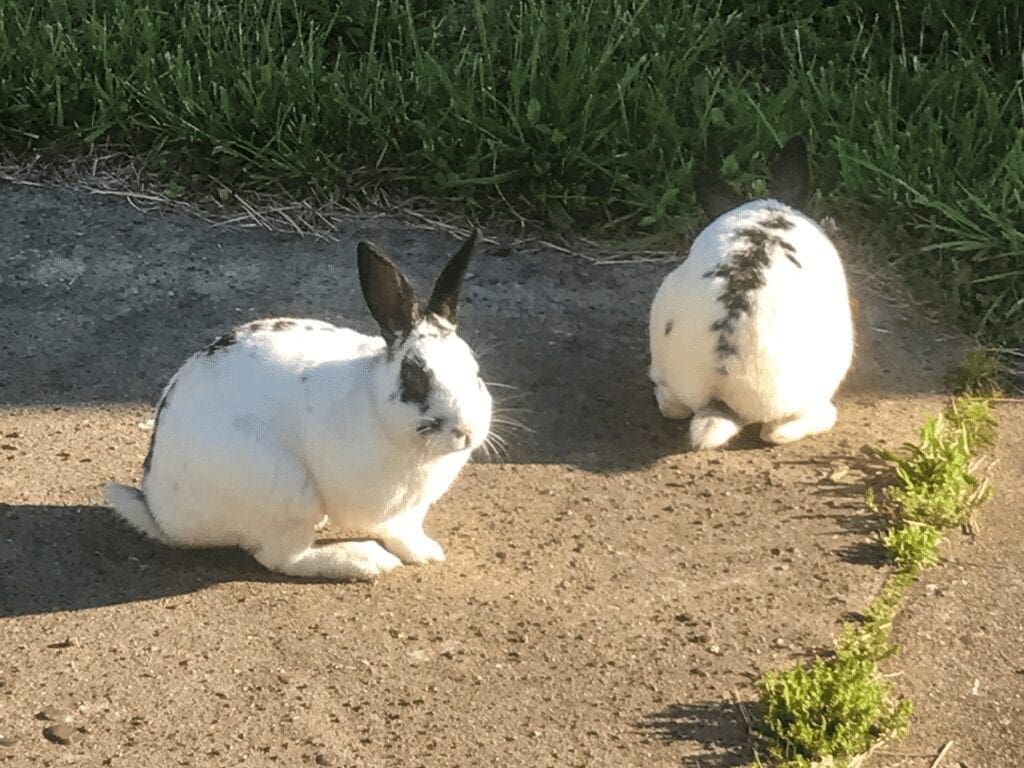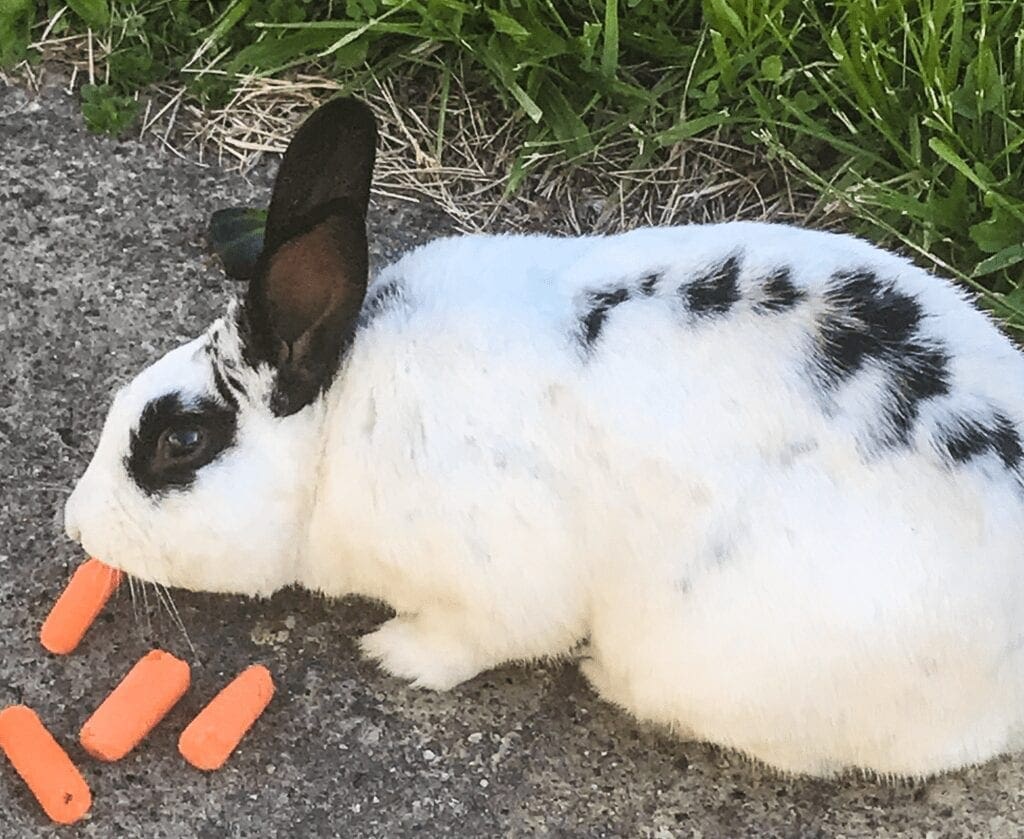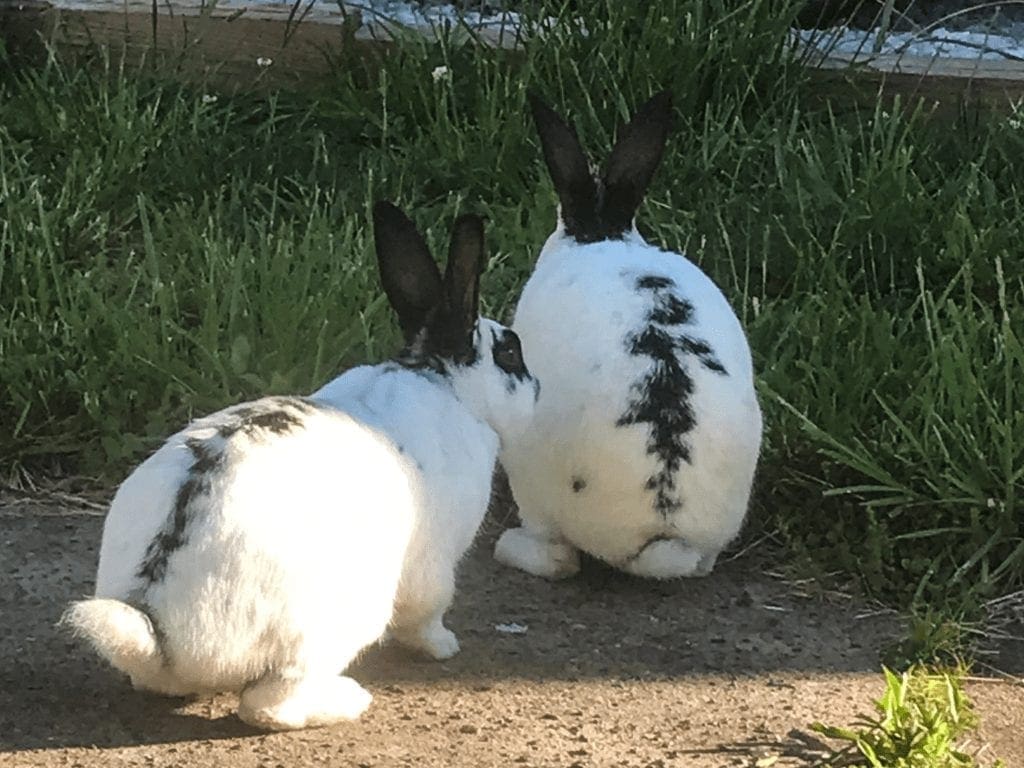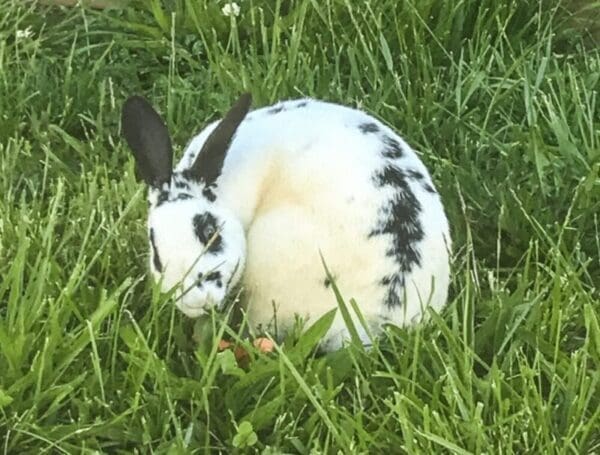They were pets before being set loose in South Wheeling in the alleged name of freedom about two years ago, and normally domesticated rabbits do not survive long in the wild.
“But these ones have,” said Doug McCroskey from the Ohio County Animal Shelter. “I don’t know why they have, and that’s why I’ve been shocked that not only have they survived, but there are more of them because that’s what rabbit do often. They reproduce.
“Normally, though, the feral cats will get a hold of them and take care of them,” he explained. “If it’s not the cats, it’s a fox or a raccoon. If it comes down to something to eat or territory, that usually doesn’t end well for domesticated rabbits that have been set free. But I have been told the people of South Wheeling have sort of adopted them, and that they feed them, and that’s probably why they are still around and will be around for a while.”

South Wheeling Bunnies are Survivors
Bread, lettuce, celery, carrots, and even French fries from the local Dairy Queen have been eaten by the bunnies of South Wheeling, according to several members of the P.A.P. Club on the corner of 45th and Jacob streets, but McCroskey warns gardeners who may soon be planting.
“When we have had domesticated rabbits at the Ohio County Shelter because the owners had to be in the hospital for some reason, I would go to Tractor Supply in Elm Grove and get commercial grade feed that has corn, grain and nuts, and wheat, but on the streets they will eat from people’s gardens, and they will eat flowers, too,” he explained. “In particular, they seem to really love tomato plants, and yes, they do like carrots just like Bugs Bunny.
“For the rabbits in South Wheeling, it probably took at least a year for them to learn how to live in the wild,” McCroskey continued. “The fact they are still there tells me those bunnies have learned a lot about how to survive. They usually stay pretty well hidden during the day because they are nocturnal animals by nature. That’s a part of how they protect themselves, too, but if they are in a friendly atmosphere, they could come out during the day, too.”

Instinctive Learning Curve
“Thumper” the pet bunny doesn’t need to learn how to thump back against a possible predator.
But rabbits living the wild were born with innate, defensive instincts that include hiding, fleeing, and even fighting back with their powerful legs. Rabbits also instinctively create hideouts by burrowing holes to hide in. McCroskey believes the bunnies of South Wheeling have learned some of those survival tactics.
“Rabbits that live in the wild usually dig a hole that they live in, and that’s for their safety,” the animal warden explained. “Even domesticated rabbits can learn to burrow so they can stay out of sight when they feel they need to, and that’s why I’m sure they have an area in South Wheeling where they go when the sun comes up. They have created those holes somewhere.

“Those bunnies in South Wheeling have learned how to survive in that neighborhood; that’s for sure, and from what I am told, the people really love them,” he said. “I don’t know why they were set free by the owner, but I do know they have been adopted by a lot of people in South Wheeling.”
And, as far as McCroskey is concerned, the bunnies of South Wheeling will remain where those “Thumpers” belong.
“I’ve known about those rabbits for about a year now, but I have seen them only once,” he reported. “When I did see them, though, there were five of them together, and that’s kind of strange because you usually don’t see that many together like that. It told me that they likely all lived together somewhere at some point in time.
“I know when I first got the call, it was someone who was concerned for the bunnies because they were turned loose,” he explained. “But when I found out about them, they had already survived an entire year, and that means they lived through a winter and through a hot summer. So, if they have survived this long, then I say just let them survive. Those rabbits aren’t bugging anyone or causing problems because if they were, I would have heard about it by now.”
Chef Droginske Assists with Creation of New Oglebay Way


